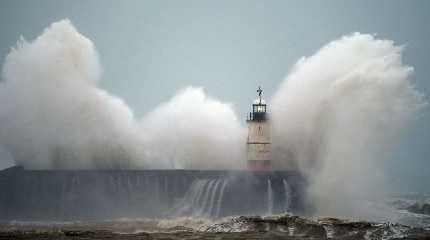
TALLAHASSEE, Fla. (AP) — Florida Gov. Ron DeSantis has declared a state of emergency for 24 counties as Tropical Storm Ian gathers strength over the Caribbean and is expected to bring heavy rain and hurricane-force winds to the state next week.
DeSantis issued the order Friday encouraging residents and local governments to make preparations as the storm moves toward the state. He has also requested a federal pre-landfall emergency declaration.
“This storm has the potential to strengthen into a major hurricane and we encourage all Floridians to make their preparations,” DeSantis said in a statement. “We are coordinating with all state and local government partners to track potential impacts of this storm.”
The National Hurricane Center said Ian is forecast to rapidly strengthen in the coming days before moving over western Cuba and approach Florida next week with major hurricane force.
John Cangialosi, a senior hurricane specialist with National Hurricane Center in Miami, said it is currently unclear where Ian will hit hardest in Florida and said residents should begin preparing for the storm, including gathering supplies for potential power outages.
“Too soon to say if it’s going to be a southeast Florida problem or a central Florida problem or just the entire state,” he said. “So at this point really the right message for those living in Florida is that you have to watch forecasts and get ready and prepare yourself for potential impact from this tropical system.”
The governor’s declaration applies to Brevard, Broward, Charlotte, Collier, DeSoto, Glades, Hardee, Hendry, Highlands, Hillsborough, Indian River, Lee, Manatee, Martin, Miami-Dade, Monroe, Okeechobee, Osceola, Palm Beach, Pasco, Pinellas, Polk, Sarasota and St. Lucie counties.
Meanwhile, strong rain and winds are lashing the Atlantic Canada region as a powerful post-tropical cyclone made landfall there, with forecasters warning it could be one of the most severe storms in the county’s history. Fiona made landfall in Nova Scotia before dawn Saturday.
More than 500,000 customers in Atlantic Canada have been affected by outages. Ocean waves pounded the town of Port Aux Basques on the southern coast of Newfoundland, where entire structures were washed into the sea.




